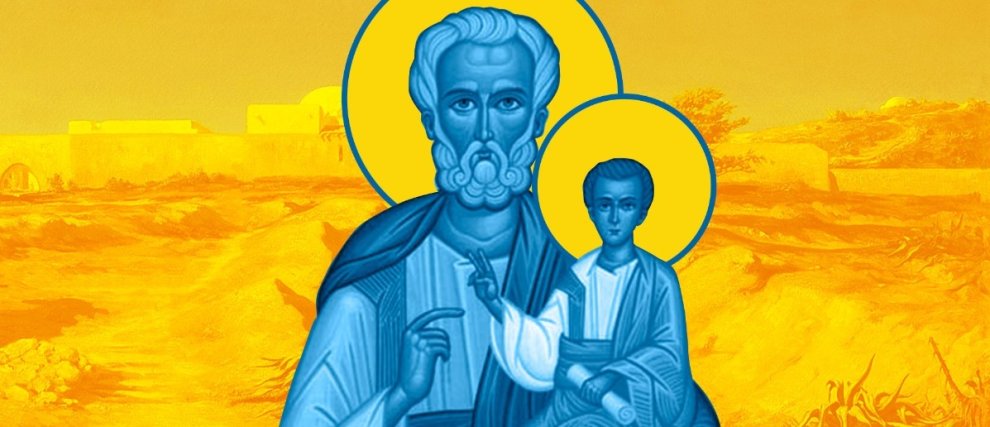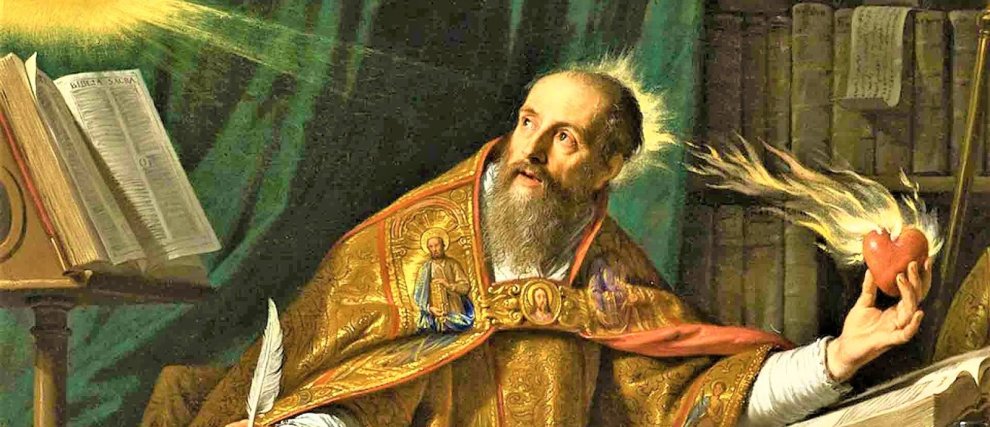The Fathers of the Church
The Fathers of the Church refer to personalities from the first eight centuries who, through their writings in particular, had a real influence on the development of Catholic doctrine. Most of them were bishops and priests. As witnesses of Tradition, the Fathers of the Church should not be confused with the Desert Fathers or the Doctors of the Church. Recognized for their holiness, the Fathers of the Church have something to offer us today, as we are all called to holiness (cf. Lumen Gentium). Saint Augustine of Hippo, Saint Ambrose, Saint Jerome, Saint Gregory... Discover who the Fathers of the Church are and how their contribution is essential to us Christians of today!
The Fathers of the Church, summed up
Criteria
In general, Tradition usually considers four criteria for the title of Father of the Church: · Belonging to the period of the ancient or early Church, i.e., before the 8th century · Leading a holy life · Writing a work free from doctrinal errors · Receiving the approval of the Church
Classification of the Fathers of the Church There are different ways to classify the Fathers of the Church, for example according to: · Their era: For instance, the Apostolic Fathers mainly refer to those of the 1st and 2nd centuries who had a direct connection with the apostles. They are thus linked to the early days of the Church, which primarily distinguishes them from the Doctors of the Church. · The nature of their writings (apologists): One can think of Justin Martyr - (? - 165), Theophilus of Antioch - (circa 180 - ?), the anonymous author of the Epistle to Diognetus - (between 140 and 200), and many others. · Their language (Greek or Latin Fathers).Here are, for example, some influential Greek and Latin Fathers.
Greek Fathers: Athanasius of Alexandria (296/298-373), Basil of Caesarea (329-379), Gregory of Nazianzus (329-390), John Chrysostom (344/349-407)
Latin Fathers: Ambrose of Milan (340-397), Augustine of Hippo (354-430), Gregory the Great, Pope (540-604), Jerome of Stridon (347-420) · Their influence One can think of those who are regarded as great theologians or Doctors of the Church, etc.
Fathers and Doctors of the Church
Fifteen Fathers of the Church also have the title of Doctors of the Church. They are:
1. Saint Irenaeus of Lyon
2. Saint Cyril of Jerusalem
3. Saint Athanasius of Alexandria
4. Saint Ambrose of Milan
8. Saint Cyril of Alexandria
9. Saint Jerome
11. Saint Leo the Great
12. Saint John Damascene
14. Saint Isidore of Seville
15. Saint Bernard of Clairvaux
What is Patristics?
The discipline that deals with the works and the doctrine of the Church Fathers is patristics, while patrology specifically deals with the life and writings of the Church Fathers in their historical context. In summary, the study of the Church Fathers focuses on the writings of these great thinkers, such as their works, treatises, scriptural commentaries, catechesis, sermons, etc. The important languages found in patristic literature are Hebrew, Greek, Latin, Syriac, Armenian, and Persian.
Why study the Fathers of the Church today?
To gain a better understanding of history
Just as every person knows their own history, the study of the Church Fathers enables every baptized individual to have a better understanding of the history of the Church, tradition, the influence of the Church Fathers on theology, liturgy, and more. Moreover, for the Church Fathers, a baptized person cannot set aside history, as it is in history that God has revealed Himself. Therefore, every baptized person should seek to have a better knowledge of history. A source of richness for spiritual life, the Writings of the Church Fathers allow for nourishing spiritual life with countless catecheses and works: one can think, for example, of the Confessions of Saint Augustine. The Writings of the Fathers also constitute highly enriching intellectual contributions in pastoral life, consider, for instance, the catecheses of Cyril of Jerusalem. The Church Fathers can also help us to better understand Scripture, for example, The Life of Moses, written by Gregory of Nyssa, which is a commentary on the book of Exodus.
To be inspired by role models
We can draw inspiration from their lives to pursue the desire to become saints: for example, we have a beautiful passage about Christians in the World, in the Epistle to Diognetus, which can still be an inspiration for us today: The soul dwells in the body, and yet it does not belong to the body, just as Christians dwell in the world, but do not belong to the world, or “they spend their lives on earth, but they are citizens of heaven.”
Defenders of the Christian faith, the Fathers of the Church are also inspiring models for us today to proclaim our faith in a society where the mission appears as a priority. Both theologians and great spiritual figures, we can also draw inspiration from these great Church authors to remind ourselves that the mission always involves contemplation, and that one of the goals of the Christian life is for it to no longer be I who live, but Christ who lives in me (see Gal 2:20).
To deepen your knowledge of the Fathers of the Church
Some books on the Fathers of the Church
Here is a list, obviously very incomplete, of some works of the Fathers of the Church, which you can read.
- Saint Augustine, The City of God
- Saint Augustine, Confessions
- Saint Augustine, the Trinity
- Saint Ambrose, On Sacraments
- Saint Jerome, The Vulgate
- Gregory the Great, On the Care and Duty of Pastors
Some quotes from on the Fathers of the Church
Saint Augustine, The Confessions, I, 1, 4-5
O Lord, you are great and truly worthy of praise; great is your power, and your wisdom is countless! To praise you is what a man desires, through any part of your creation, and a man who carries his mortality everywhere also carries the testimony of his sin, and the testimony that you resist the proud. Yet, to praise you is what a man desires, through any part of your creation. It is You who urges him to take pleasure in praising you because you have made us oriented towards You, and our heart is restless until it finds rest in You.
Leo the Great, Sermon 20, 1st on the Nativity
“Let us therefore set aside the old man with his deeds, and having become partakers of the generation of Christ, let us renounce the works of the flesh. Acknowledge, O Christian, your dignity: associated with the divine nature, do not return to your former lowliness through a degenerate way of living. Remember of which Head and of which Body you are a member!”
Draw on the riches of the Fathers of the Church with Hozana
On Hozana, find online journeys to walk with the great saints. From their writings, from their lives, discover their spirituality and how it can nourish your faith today. For example, with
You can also choose to receive a short text each morning to discover the saint of the day.

